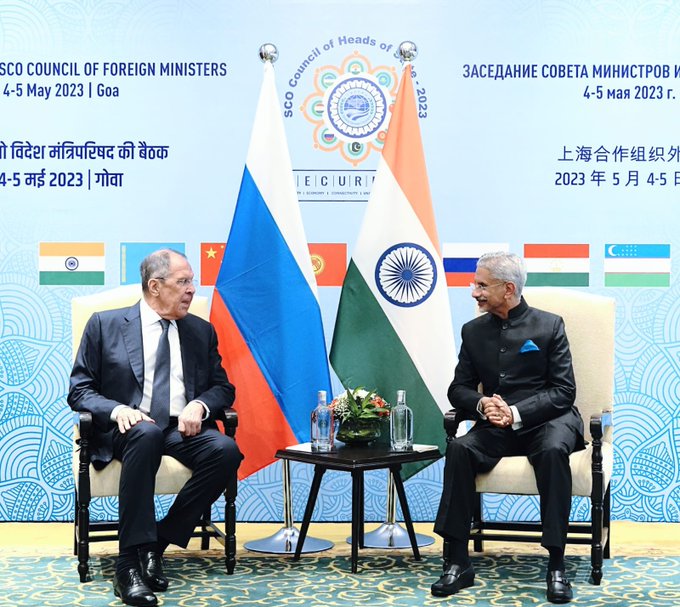Russian Foreign Minister Sergei Lavrov claimed that his nation has accumulated billions of rupees in Indian banks which it can't use, due to a combination of a growing trade surplus and economic sanctions on Russian banks.
"This is a problem," Lavrov told reporters in Goa on the sidelines of the Shanghai Cooperation Organisation meeting. "We need to use this money. But for this, these rupees must be transferred in another currency, and this is being discussed now."
India's total exports to Russia shrunk 11.6% to USD 2.8 billion in the first 11 months of the 2022-23 financial year, while imports rose nearly fivefold to USD 41.56 billion, according to data from the Ministry of Commerce and Industry.
That surge came as refiners have scooped up discounted Russian oil in the past year that's been shunned by the West in response to President Vladimir Putin's invasion of Ukraine.
Imports of Russian crude to India reached a record 1.68 million barrels a day in April, up sixfold on a year earlier, according to Vortexa Ltd, a data intelligence firm.
The Kremlin also initially encouraged India to trade in national currencies following sanctions on Russian banks and a ban on transactions using the SWIFT messaging system. But volatility in the ruble soon after the war began meant plans for a rupee-ruble mechanism for oil imports were abandoned. India has also resisted pressure from the US to scale back relations with Moscow since the invasion of Ukraine.
The imbalance in trade for Russia means the volume of 'frozen funds' can reach tens of billions of dollars, said economic experts.
Russia is India's largest supplier of weapons and military hardware, though defense supplies to the South Asian nation have stalled for lack of a payment mechanism that doesn't violate US sanctions.
Indian payments for weapons amounting to more than USD 2 billion have been stuck for about a year as New Delhi has been unable to settle the bill in dollars because of concerns about falling foul of secondary sanctions, while Russia is reluctant to accept rupees for purchases.
The oil refiners have been trying to settle payments for discounted crude using United Arab Emirates dirhams, rubles and rupees. Trades can be exempted from international restrictions if they are priced below the USD 60-a-barrel price cap set by the Group of Seven nations and their European Union partners.
Currency restrictions mean Russian exporters face difficulty in repatriating rupees, Bank of Russia Governor Elvira Nabiullina said on April 28.



